Social media and spending: 'First-of-a-kind' study sheds lights on cosmetics trends in Brunei

A total of 445 participants aged 18 to 65 responded to the online survey, which aimed to measure attitudes and current practices around cosmetics use.
The majority of the participants were aged betwen 18 and 35 (328, 73.7%), and just over half had a monthly income of less than BND1000 (USD700) (229, 51.5%). Despite this, they reported spending more than BND100 (USD70) per month on cosmetic products (354, 79.6%).
The research team, from universities in Brunei, Malaysia and Indonesia, also assessed consumer attitudes to cosmetic safety, in what they claim was a ‘first-of-a-kind’ study in the country.
The wrote in the International Journal of Environmental Research and Public Health: “Attitudes towards safe use of cosmetics were generally high among our study participants. A high percentage of them agreed or strongly agreed that the use of cosmetics can cause allergies (231, 51.9%), can improve one’s physical appearance (391, 87.8%), and can improve self-confidence (405, 91.1%).
"More than half of the participants (289, 54.9%) agreed or strongly agreed that before the cosmetics are sold on the market they must be well tested in laboratories. Only 19.3% (n = 86) agreed that using cosmetics can cause reproductive health problems.”
Social media momentum
While respondents reported using a broad range of sources to gain cosmetics knowledge and decide on purchases, social media was the clear front runner.
“Study participants tend to rely on a variety of sources for information about which cosmetics to buy or use, such as family members (22.1%), friends (25.7%), social media (43.3%), television (7.4%), and others Nearly half of the participants reported that social networking sites provided them with knowledge about what cosmetics to buy and use. Other sources reported include counselling from a beautician or aesthetician, shop posters, pharmacy store posters, and magazine advertisements,” they wrote.
In terms of products, it was found that a large number of participants use sunscreen with SPF 50 and above, along with skin or lip products containing Vitamin A.
While cosmetics regulations were tightened in Brunei in the shape of the Medicine (Cosmetic Products) Regulation in 2007, in line with the ASEAN (Association of Southeast Asian Nations) Cosmetic Directive (ACD), the researchers believe there is further need to strengthen ‘cosmovigiliance’.
They concluded: “The goal of this study was to explore the public’s attitudes and practices regarding the safe use of cosmetics. We can examine and understand the public’s viewpoints on the definition and the safe use of cosmetics as a result of the study’s findings. In addition, this study encourages the continuation of cosmetovigilance, which is useful for the safe monitoring of cosmetics usage.
"Through this, any adverse reaction from the use of cosmetics can be detected and prevented. Therefore, consideration should be given to further strengthening the idea of cosmetovigilance among consumers, vendors, and other stakeholders.”
Source: International Journal of Environmental Research and Public Health
https://doi.org/10.3390/ijerph191710584
"Cosmetics: What Do Bruneian Female Adults Believe?"
Authors: Long Chiau Ming, et al
![A round-up of the recent trend developments in the APAC beauty and personal care market,[Biologique Recherche]](/var/wrbm_gb_food_pharma/storage/images/_aliases/wrbm_medium/publications/cosmetics/cosmeticsdesign-asia.com/article/2022/10/11/what-s-trending-the-most-read-stories-on-apac-beauty-market-and-consumer-insights/15839117-2-eng-GB/What-s-trending-The-most-read-stories-on-APAC-beauty-market-and-consumer-insights.jpg)
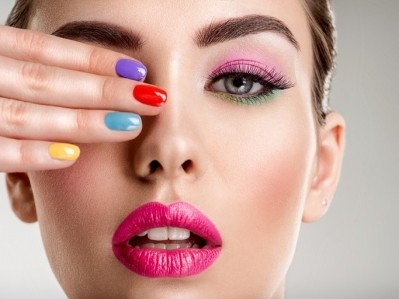
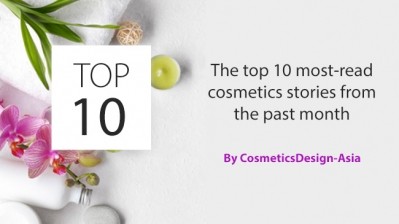
![The recent trend developments in the Asia Pacific beauty and personal care market. [Getty Images]](/var/wrbm_gb_food_pharma/storage/images/_aliases/wrbm_medium/publications/cosmetics/cosmeticsdesign-asia.com/article/2022/08/09/top-5-apac-beauty-market-and-consumer-insights/15660900-1-eng-GB/Top-5-APAC-beauty-market-and-consumer-insights.jpg)
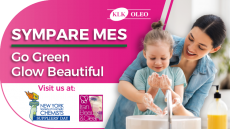

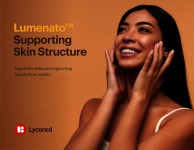
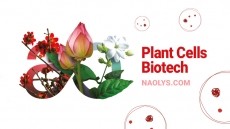


![[Getty Images]](/var/wrbm_gb_food_pharma/storage/images/_aliases/wrbm_tiny/publications/cosmetics/cosmeticsdesign-asia.com/china/china-focus-latest-developments-in-china-s-booming-beauty-market22/17370102-1-eng-GB/China-focus-Latest-developments-in-China-s-booming-beauty-market.jpg)
![YSL's LoveShine launch has sparked a demand surge in Japan. [YSL]](/var/wrbm_gb_food_pharma/storage/images/_aliases/wrbm_tiny/publications/cosmetics/cosmeticsdesign-asia.com/article/2024/04/24/ysl-loveshine-launch-propels-lip-gloss-sales-to-record-highs-in-japan-since-2020/17372064-1-eng-GB/YSL-LoveShine-launch-propels-lip-gloss-sales-to-record-highs-in-Japan-since-2020.jpg)
![There is significant scope for innovation and new launches in the hair repair sector, especially in soaring markets such as China. [Getty Images]](/var/wrbm_gb_food_pharma/storage/images/_aliases/wrbm_tiny/publications/cosmetics/cosmeticsdesign-asia.com/article/2024/04/24/croda-zeroes-in-on-hair-repair-solutions-as-damage-hair-concerns-surge-in-markets-like-china/17362731-1-eng-GB/Croda-zeroes-in-on-hair-repair-solutions-as-damage-hair-concerns-surge-in-markets-like-China.jpg)



![Lubrizol has extended its partnership with C-beauty major PROYA. [PROYA]](/var/wrbm_gb_food_pharma/storage/images/_aliases/wrbm_tiny/publications/cosmetics/cosmeticsdesign-asia.com/headlines/brand-innovation/lubrizol-bullish-on-potential-of-c-beauty-growth-potential/17362515-1-eng-GB/Lubrizol-bullish-on-potential-of-C-beauty-growth-potential.jpg)


